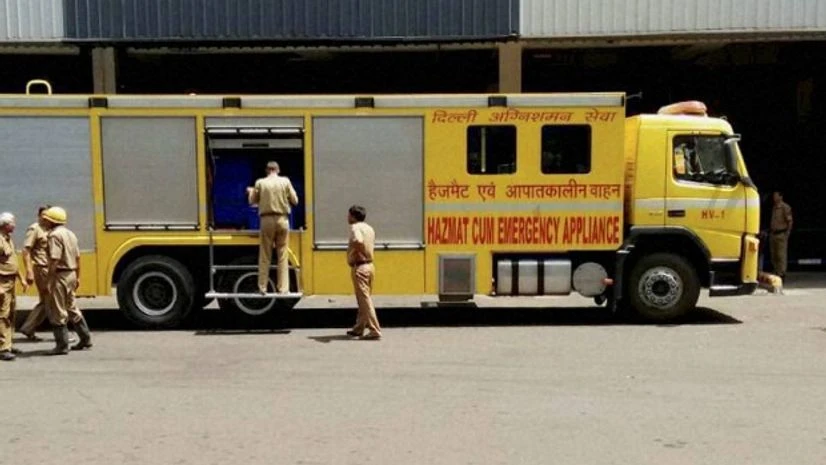However, no casualty has been reported and the passenger operations have not been affected.
Union home minister Rajnath Singh has said the leakage has been plugged. The airport staff handling the cargo suspected the radioactive leak due to wetness seen on the package. A Turkish Airlines plane coming from Istanbul was carrying the package and after the leak was detected it was removed from the aircraft and kept in cargo segregation area of the IGI airport. It contained sodium iodide which is used for treatment of thyroid cancers.
A team each from Atomic Minerals Directorate for Exploration and Research (AMD), Bhabha Atomic Research Centre (BARC) and National Disaster Response Force (NDRF) reached the site and made arrangements for the removal of the material.
The Directorate General of Civil Aviation (DGCA) has initiated a probe into the matter. The aviation regulator is awaiting report from atomic energy department and will also seek details from Turkish Airlines which carried the consignment, sources said.
The preliminary assessment by the AMD showed that the material detected was of "low radioactivity - sodium iodide liquid class 7 meant for medical use," a Delhi International Airport Limited (DIAL) spokesperson said adding, "This area is far away from any of the passenger terminals and there is absolutely no risk of exposure to any passengers."
"Turkish Airlines's relevant cargo and technical teams have effectuated the necessary controls and radiological surveys on-board the aircraft landed back to Istanbul but no evidence has been detected. The necessary information on the incident has been made to the relevant official authorities by Turkish Airlines," said Ali Genç, SVP Media Relations at Turkish Airlines.
More From This Section
NDRF chief O P Singh said there is nothing to panic as the radioactive leak was small and his team is "sanitising" the area. "Radioactive leak was very small. There is nothing to panic and there is no effect on the passenger area," Singh said.
The Delhi airport has two cargo terminals - Celebi Delhi Cargo Terminal Management India and Delhi Cargo Services Center Private Limited. The import operations have been halted temporarily at the former while both export and import operations are proceeding uninterrupted at the latter one.
Sources said the DGCA inquiry will ascertain the extent of leakage and whether the consignment was properly handled both in Turkey and on arrival in Delhi. International Civil Aviation Organisation (ICAO) and International Air Transport Association lay down regulations with regard to carriage and handling of dangerous goods including radioactive material.
“After an extensive assessment, Atomic Energy Regulatory Board (AERB) has confirmed that there was no leak of any radioactive substance in the subject shipments at Delhi Airport. Based on the clearance from AERB, Celebi has already resumed the Import operations. All other operations at Delhi Airport continue to be normal and were never interrupted,” a DIAL spokesperson said.
In India the Directorate General of Civil Aviation issued the Aircraft (Carriage of Dangerous Goods) Rules, 2003. These rules and IATA's Dangerous Goods Regulations specify measures which airlines and shippers need to take while packing and handling of such consignment. DGCA's authorisation is required by airlines and ground handlers in India to carry dangerous goods and the civil aviation regulator can also order an inquiry in case of spillage, leakage of fluid or radiation.
According to the DGCA rules a dangerous goods incident includes an occurrence associated to transport of dangerous goods by air, not necessarily occurring on board an aircraft which results in injury to a person, damage to property, fire, breakage, spillage, leakage of fluid or radiation or other evidence that the integrity of the packaging has not been maintained and also and also includes any occurrence relating to the transport of dangerous goods which seriously jeopardizes the aircraft or its occupants.

)
